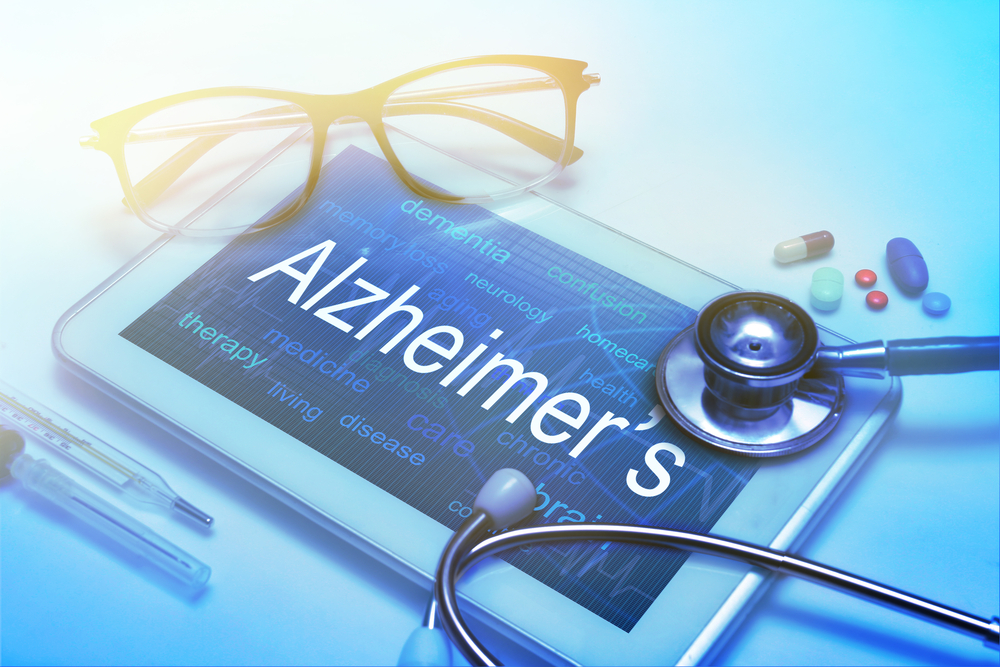Herpes Virus Increases Alzheimer’s Risk, but Antivirals May Be Effective Therapy, Review Study Reports
Written by |

Herpes simplex virus type 1 (HSV1) may be linked to Alzheimer’s development, and antiviral therapies lower the risk of senile dementia in patients with severe herpes infections, according to a review study.
The research, “Corroboration of a Major Role for Herpes Simplex Virus Type 1 in Alzheimer’s Disease,” appeared in the journal Frontiers in Aging Neuroscience.
Increasing evidence has supported the concept that HSV1, found in most people by age 70, is a major risk for Alzheimer’s development. This concept proposes that latent HSV1 in the brains of carriers of the type 4 allele of the apolipoprotein E gene (APOE-ε4) is reactivated intermittently by events such as immunosuppression, peripheral infection, and inflammation. The consequent damage accumulates and eventually results in the development of Alzheimer’s disease.
“HSV1 could account for 50% or more of Alzheimer’s disease cases,” Ruth Itzhaki, the review’s author from the University of Oxford, in the U.K., said in a press release.
This hypothesis was based on scientific findings that viral HSV1 DNA was detectable in the brains of both Alzheimer’s patients and healthy, asymptomatic elderly people. The difference, however, was that patients were APOE-e4 carriers, suggesting either greater viral damage or poorer repair.
Accumulated damage in neurons of APOE-e4 carriers, through direct viral action and inflammation, would cause Alzheimer’s, Itzhaki observed.
The association between APOE-e4 and herpes was further evidenced by a study that reported that having this gene variant boosted the risk for cold sores, caused mainly by HSV1, in the peripheral nervous system.
To test this concept, researchers from Taiwan have analyzed data that includes over 99% of the population to look for correlations between microbial infections and chronic diseases. These data have given rise to studies that focused on the development of senile dementia — including Alzheimer’s – and the treatment of patients with overt signs of infection with HSV or varicella zoster virus (VZV). Of note, VZV causes chickenpox, and, after also remaining lifelong in patients, herpes zoster, or shingles.
Treatment with anti-herpes medications lowered the incidence of senile dementia almost tenfold in HSV-infected patients, compared to untreated patients. This was particularly evident in people treated for periods longer than 30 days.
“The striking results include evidence that the risk of senile dementia is much greater in those who are infected with HSV, and that anti-herpes antiviral treatment causes a dramatic decrease in the number of those subjects severely affected by HSV1 who later develop dementia,” Itzhaki said.
Itzhaki cautioned that these results apply only to cases of severe HSV1 or VZV infection, which are rare. Dementia rates should be studied in those with mild HSV1 infection, “but these [cases] are far less likely to be documented. However, “when considered with the over 150 publications that strongly support an HSV1 role in [Alzheimer’s], they greatly justify usage of antiherpes antivirals to treat AD,” the investigator said.
A possible explanation for this greater risk was provided by studies by Itzhaki’s group, as well as other scientists. In both HSV1-infected cell cultures and mice, researchers found accumulation of amyloid-beta, which is the primary component of senile plaques. The main component of intracellular tangles, a modified — called hyperphosphorylated — version of the protein tau, also accumulated in HSV1-infected cell cultures.
Although further work is necessary to better understand the role of HSV1 in Alzheimer’s, Itzhaki is supportive of pursuing this treatment strategy. “Even if the effects were merely a delay in onset of the disease, this would still be enormously beneficial for patients, carers and the economy,” she said. “They also incentivize development of an HSV1 vaccine, which would likely be the most effective treatment.”
Overall, the recent focus of a microbial cause of Alzheimer’s disease is a change from three decades ago, when this link was ignored, the researcher said. “Surely, now is the time to rectify the situation by determining and then using the best means of treatment at hand.”





